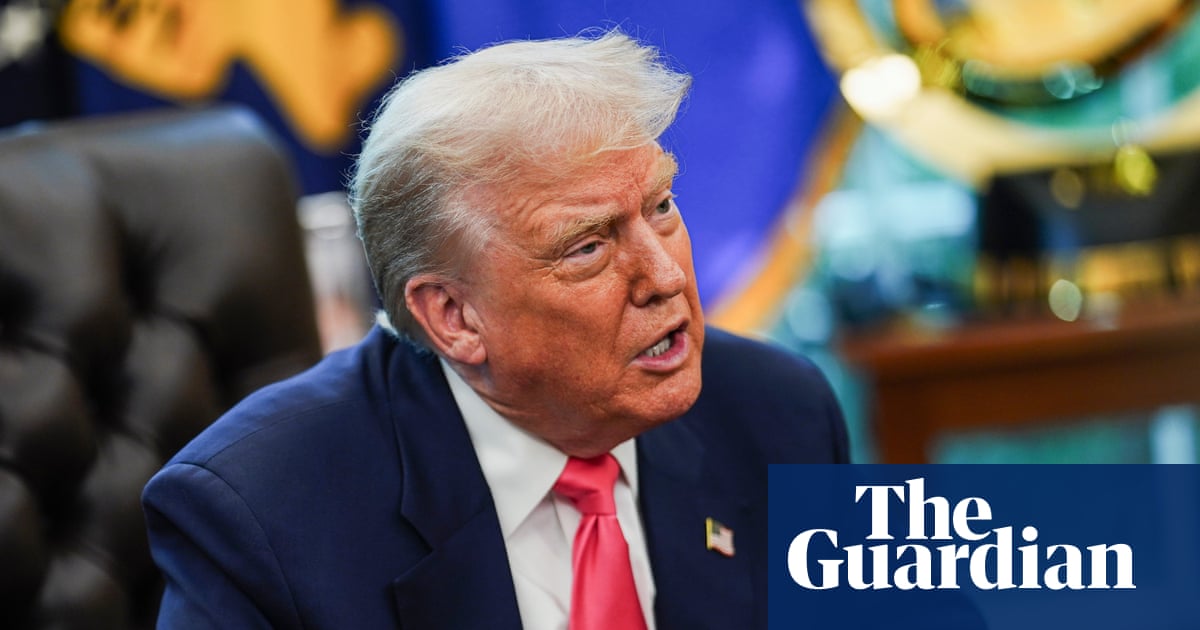Trump’s DC Crackdown: Unpacking the Federal Takeover and Crime Claims
Trump’s DC Crackdown: Unpacking the Federal Takeover and Crime Claims

In a controversial move during his presidency, Donald Trump falsely asserted on a Thursday that crime in Washington D.C. had reached an all-time high, coinciding with a significant federal intervention into the city’s policing. This included the deployment of the National Guard and federal agents, alongside a federal takeover of the Metropolitan Police Department (MPD).
From the Oval Office, Trump declared, “Washington DC is at its worst point,” though he optimistically added, “It will soon be at its best point.” He further made unsubstantiated claims that D.C. law enforcement officials were fabricating crime statistics and were under investigation.
These statements came amidst heightened tensions, as protesters confronted federal law enforcement at checkpoints across the city. Reports indicated that officers, some from the Department of Homeland Security, were stopping vehicles for minor infractions, leading to at least one arrest and more than 100 protesters gathering to voice their opposition, urging drivers to avoid the area.
The federal efforts also targeted the city’s homeless encampments, a long-standing fixation for Trump. City police began clearing these encampments, despite warnings from D.C. officials and advocates about the severe shortage of shelter beds. Amber W. Harding, executive director of the Washington Legal Clinic for the Homeless, highlighted the chaotic and frightening situation for unhoused residents.
Approximately 800 National Guard troops were deployed to the city, with about 200 members on the streets at any given time to support federal and local police. The White House reported over 100 arrests since Trump announced the takeover, while the MPD confirmed 217 arrests since the start of the week.
Further escalating federal control, the MPD chief reportedly issued an executive order allowing the department to notify Immigrations and Customs Enforcement (ICE) about undocumented immigrants encountered during traffic stops, a significant policy shift. Attorney General Pam Bondi also appointed Terry Cole, head of the DEA, as Washington’s “emergency police commissioner,” granting him authority over the MPD and raising questions about the role of the city’s existing police chief, Pamela Smith.
While the D.C. Home Rule Act of 1973 permits a presidential takeover of the police force for 30 days for “federal purposes,” Trump had indicated a desire to extend this period, which would require Congressional approval. Senate Democratic leader Chuck Schumer vehemently opposed such an extension, threatening a legislative battle. Trump, however, suggested he might declare a national emergency to unilaterally extend the takeover if Congress did not comply.
Despite Trump’s portrayal of D.C. as crime-ridden, violent crime in the city had actually reached a 30-year low in 2024, following a spike in 2023. D.C. Mayor Muriel Bowser pushed back against the narrative, emphasizing the city’s resilience and rejecting the president’s negative characterizations. Phil Mendelson, chair of the D.C. City Council, acknowledged the potential benefits of increased law enforcement collaboration but condemned the president’s damaging politicization of the situation.
Disclaimer: This content is aggregated from public sources online. Please verify information independently. If you believe your rights have been infringed, contact us for removal.